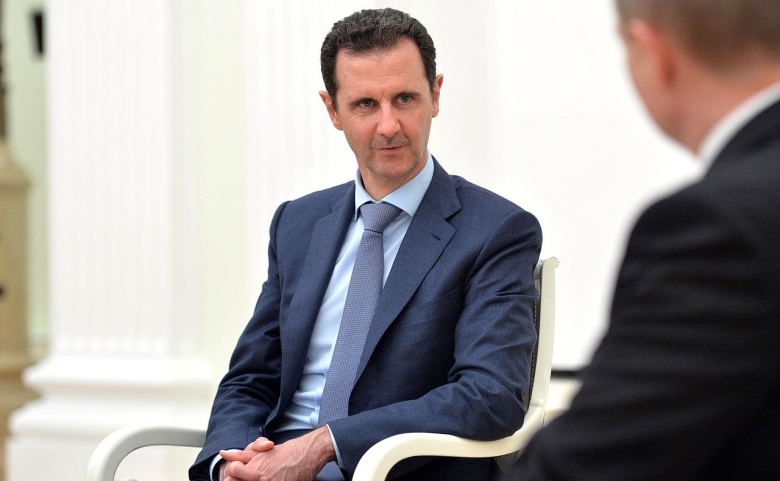Russian President Vladimir Putin’s high-profile meeting with Supreme Leader Ayatollah Ali Khamenei in Tehran on November 23 has triggered speculationthat the two sides are weighing some serious policy choices about Syria. The key question, as always, is the fate of Syrian President Bashar al Assad.
There is no doubt that Putin’s visit to Iran was of major import. The Supreme Leader’s Foreign Policy Advisor Alai Akbar Velayati claimed that the Russian president’s meeting with Khamenei was the most important in the history of the Islamic Republic of Iran, explaining that Putin agreed that “no type of agreement [on Syria] would occur…without coordinating with Iran.”
Iranian coordination will almost certainly support the Syrian regime. When Velayati met with President Assad on November 29, he noted that Iran “will not accept any peace plan that has not been approved by the Syrian government and nation.” Iran maintains a firm redline that the Syrian president should not be forced to relinquish power, and must be allowed to stand for any election during a transition process. President Assad would have a good chance of winning any vote held in the coming months, due to the regime’s demographic manipulation of territory under its control and the displacement of nearly half the Syrian population. There is no doubt Iran will fight hard for this option.
But what if Moscow forced Tehran to accept Assad’s departure as part of a negotiated settlement?
This is frankly a terrifying prospect for Supreme Leader Ayatollah Ali Khamenei and the Islamic Revolutionary Guard Corps (IRGC) commanders who manage the Syria portfolio. Tehran would need a candidate acceptable to a number of key constituencies within the Syrian regime including the army, the intelligence services, the minorities at the core of the Syrian state, and the remaining Sunni community that still back the President. At present, Assad is arguably the only candidate suitable for all these constituencies. Any other compromise candidate is unlikely to be able to unify diverse constituencies and avoid paralyzing infighting.
Assad has risked assassination since the civil war began in 2011, and Tehran has undoubtedly considered alternatives. What would Iran accept for a Syria without Assad?
Someone from Assad’s Inner Circle:
On the surface this would be preferred course of action. The problem is who. The paranoid Baathist regime in Damascus is not designed to groom successors. Rather, since the onset of the civil war it has focused on eliminating potential rivals. Some Iranian leaders have even admitted there is no one else viable at the top, despite their frustration with Assad’s leadership. Regardless, such an individual would likely be wholly unacceptable to the Syrian opposition groups and their Arab and Turkish backers.
Compromise candidate from one of the country’s minorities:
Another leader from Assad’s own Alawite community, or possibly even a Christian or Druze, would be attractive to most world powers, including Russia. But despite its close alliance with Assad, Iran has few inroads with Syria’s other minorities, and struggles to work with Syria’s other powerful (and nationalistic) Alawite families.
Sunni Syrian Army officer:
This is another option that could appeal to the Russians. It is hard to see how either the Iranians or the Alawite elites would trust such an individual, however.
One possibility is decentralizing power to a group of army officers representing the each of the major Syrian communities. This only works, though, if Iran has assurance it can dominate the group’s decision-making.
Bet everything on the “Iranianization” of Syria:
The IRGC transformed the Syrian military by mobilizing over 150,000 local militia personnel to augment, and at times supplant, the ever-weakening Syrian army. Iran has also created an unprecedented integrated fighting force of IRGC, Lebanese Hezbollah, Syrian forces, and foreign Shia militia units from around the region. Tehran may hope it has made enough progress in the past few years that whoever is named “president” will be beholden to a security apparatus that largely answers to the IRGC.
None of these options beat Assad, however.
Moscow’s new interventionist Middle East policies are a potentially profound geopolitical shift in Iran’s favor. However, they also create an uncomfortable fear that a political decision on Syria will ultimately be driven by Russia, perhaps at the expense of key Iranian interests.
Tehran usually bets on multiple horses and is probably already laying the groundwork for an aligned post-Assad Syria, as difficult as it may be to achieve. If there is a Plan B for Iran, it probably incorporates elements from many of the five options above:
– Continue the fight on the ground to improve the Syrian regime’s position.
– Work with Russia to find candidates that have support from the army and the Alawite community.
– Prevent the emergence of any leader too popular or strong to potentially push Iran out of Syria later.
– Ensure Iran retains a veto over the transition process either directly or implicitly through threats of sabotaging any deal out of Vienna.
 Geostrategic Media Political Commentary, Analysis, Security, Defense
Geostrategic Media Political Commentary, Analysis, Security, Defense





